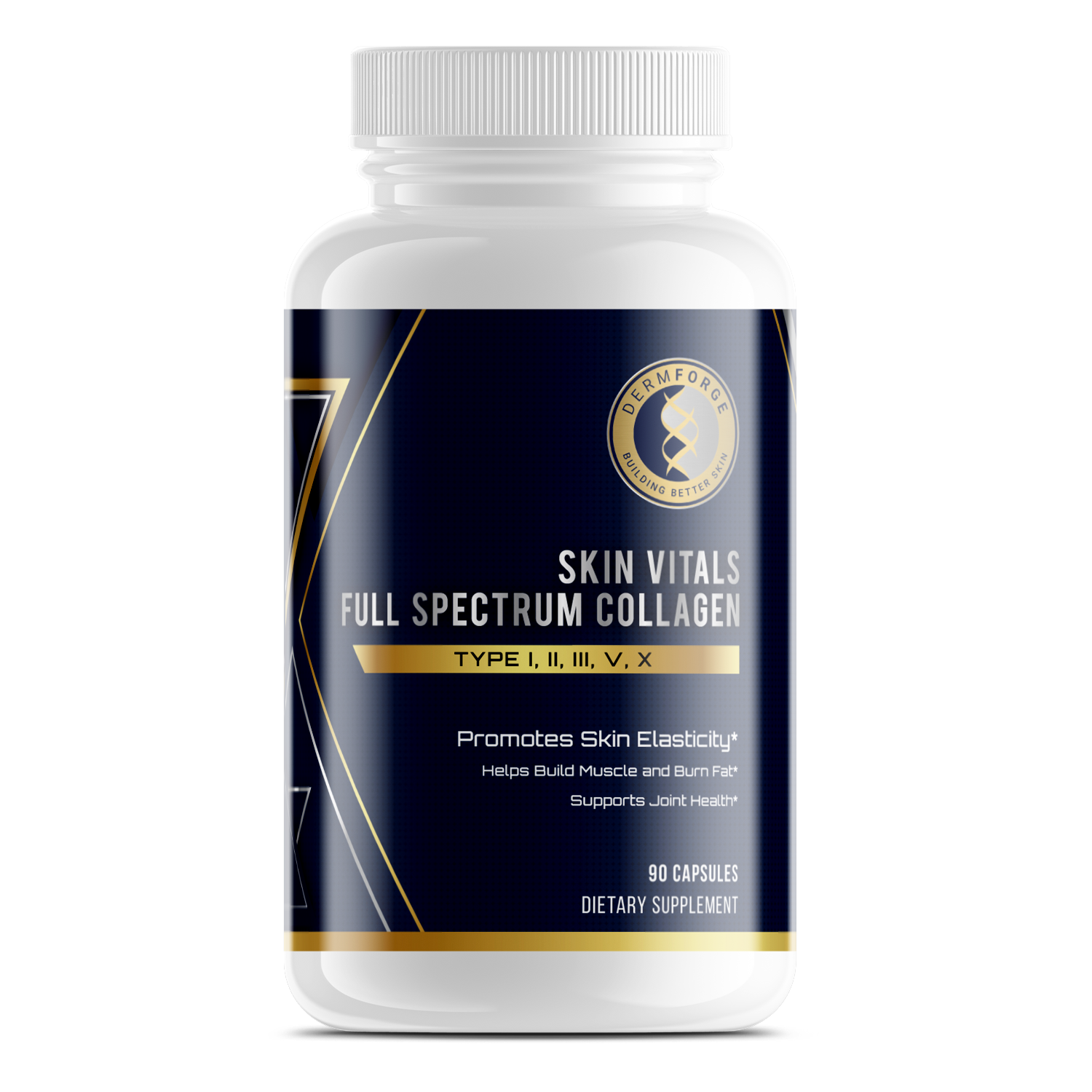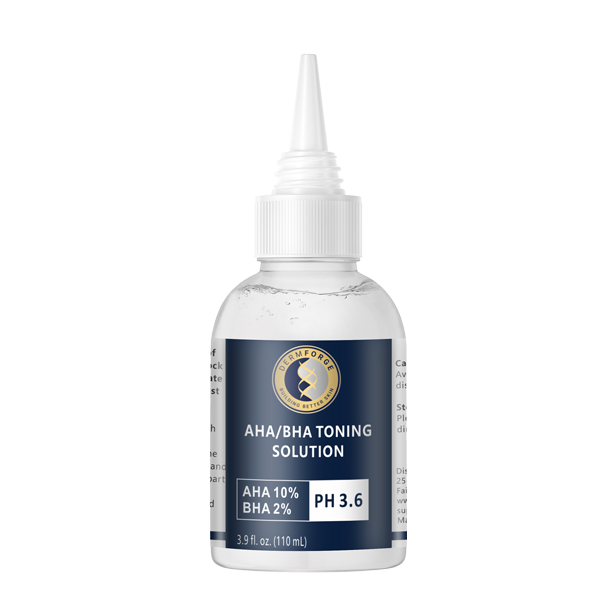In recent years, collagen supplements have gained popularity among individuals seeking to improve their skin health. As the body's natural collagen production decreases with age, many turn to these supplements to help maintain a youthful appearance. However, it's important to understand how collagen supplements work and what benefits they may offer.
By exploring the role of collagen in skin health, the various types of supplements available, and the scientific evidence supporting their use, you can make informed decisions about incorporating collagen supplements into your skincare routine.
The Role of Collagen in Skin Health
Collagen is a key protein that provides structure to your skin, bones, and connective tissues. In the skin, collagen fibers maintain elasticity, hydration, and firmness. As you age, your body's collagen production naturally decreases. This decline often leads to wrinkles, sagging, and dryness. Factors like sun exposure and smoking can accelerate this process.
To counteract these effects, many people consider collagen supplements for skin health. These supplements aim to replenish collagen levels, potentially improving skin appearance and texture. By understanding collagen's role, you can make informed decisions about your skincare routine.
Types of Collagen Supplements
When considering collagen supplements for skin health, it's important to understand the various types available. Hydrolyzed collagen, also known as collagen peptides, is a popular form. Manufacturers break down larger collagen molecules into smaller peptides, making them easier for your body to absorb. This form is versatile and can be mixed into beverages or foods.
Marine collagen is derived from fish skin and scales. It's primarily composed of type I collagen, which is abundant in human skin. Some individuals prefer marine collagen due to its high bioavailability and pescatarian-friendly source. However, if you have fish allergies, this may not be suitable.
Bovine collagen comes from cow hides and bones. It typically contains both type I and type III collagen, supporting skin structure and elasticity. Additionally, bovine collagen is known for promoting joint health. Therefore, it's a common choice for those seeking comprehensive benefits.
For those following a plant-based lifestyle, plant-based alternatives aim to support your body's own collagen production. These supplements often include ingredients like vitamin C, amino acids, and minerals that are essential for collagen synthesis. While they don't provide collagen directly, they can aid in maintaining skin health.
Each type of collagen supplement offers unique benefits. Therefore, selecting the right one depends on your dietary preferences and health goals. By understanding these differences, you can choose a supplement that aligns with your needs.
Benefits of Collagen Supplements for Skin
Collagen supplements have gained attention for their potential to enhance skin health. One notable benefit is improved skin hydration. As collagen levels decline with age, skin can become dry and lose its suppleness. By incorporating collagen supplements, you may notice better moisture retention, leading to a more hydrated complexion. This increased hydration can make your skin feel softer and look more radiant.
Additionally, collagen supplements may help reduce the appearance of wrinkles. As you age, the decrease in collagen contributes to the formation of fine lines. By boosting your collagen intake, you might experience a smoothing effect, making wrinkles less noticeable. This can result in a more youthful appearance.
Enhanced skin elasticity is another potential advantage. With aging, skin tends to lose its firmness and becomes more prone to sagging. Collagen supplements aim to restore some of this lost elasticity, helping your skin maintain its structure. Consequently, your skin may feel firmer and more resilient.
Beyond these specific benefits, collagen supplements for skin health may contribute to overall skin vitality. Regular use could support a healthier skin barrier, aiding in protection against environmental factors. This comprehensive support helps your skin look and feel its best.
In summary, incorporating collagen supplements into your routine may offer several skin benefits. Improved hydration, reduced wrinkles, and enhanced elasticity are among the potential advantages. By understanding these benefits, you can make informed decisions about your skincare regimen.
How to Choose the Best Collagen Supplement
Choosing the right collagen supplement can significantly impact your skin health. To make an informed decision, consider factors such as bioavailability, ingredient purity, additional nutrients, and sourcing. Bioavailability refers to how well your body can absorb and use the collagen in the supplement. Hydrolyzed collagen, or collagen peptides, is broken down into smaller molecules, enhancing absorption. Therefore, selecting hydrolyzed forms may offer better results.
Additionally, examine the ingredient list for purity. High-quality supplements should be free from fillers, additives, and artificial ingredients. A clean ingredient profile ensures you're providing your body with beneficial components without unnecessary substances. Furthermore, some collagen supplements include additional nutrients like vitamin C and hyaluronic acid. Vitamin C plays a role in collagen synthesis, while hyaluronic acid supports skin hydration. Including these can enhance the supplement's effectiveness.
Sourcing is another critical aspect. Collagen can be derived from various sources, including bovine, marine, and plant-based alternatives. If you have dietary restrictions or preferences, choose a source that aligns with them. For instance, marine collagen is suitable for pescatarians, while plant-based options cater to vegetarians and vegans. Additionally, consider whether the animals were grass-fed or pasture-raised, as this can influence the quality of the collagen.
By carefully evaluating these factors, you can select collagen supplements for skin health that align with your needs and preferences. This thoughtful approach will help you achieve the desired benefits for your skin.
Scientific Evidence and Effectiveness
Recent studies have explored the effectiveness of collagen supplements for skin health. Some research indicates that hydrolyzed collagen supplementation can improve skin hydration and elasticity. For example, a systematic review and meta-analysis of 26 randomized controlled trials involving 1,721 participants found that hydrolyzed collagen supplementation significantly improved skin hydration and elasticity compared to placebo groups.
Additionally, a randomized, double-blind, placebo-controlled study evaluated the efficacy of a supplement containing hydrolyzed collagen and vitamin C on skin parameters. The study reported increased skin hydration, improved elasticity, and a reduction in wrinkle depth after 12 weeks of daily supplementation.
However, it's important to note that not all experts agree on the efficacy of collagen supplements. Some argue that more rigorous research is needed to confirm these benefits. Therefore, while preliminary findings are promising, further studies are necessary to establish definitive conclusions.
In summary, current research suggests potential benefits of collagen supplements for skin health, including improved hydration and elasticity. However, the scientific community acknowledges the need for more comprehensive studies to confirm these effects. As with any supplement, it's advisable to consult with a healthcare professional before incorporating collagen into your regimen.
Potential Side Effects and Best Practices for Use
When considering collagen supplements for skin health, it's important to be aware of potential side effects and best practices for use. Generally, collagen supplements are safe for most individuals. However, some people might experience mild digestive discomforts, such as feelings of fullness or heartburn. Additionally, if you have allergies to specific animal sources, like fish or beef, choose a collagen supplement that avoids these ingredients.
Regarding dosage, studies suggest that a daily intake of 2.5 to 15 grams of hydrolyzed collagen is both safe and effective. For skin-related benefits, a common recommendation is around 2.5 grams per day. It's advisable to start with a lower dose to assess your body's response before considering any increase. Always follow the manufacturer's guidelines and consult with a healthcare professional if uncertain.
To maximize the benefits of collagen supplements, integrate them into a balanced diet rich in vitamins and minerals. Vitamin C, for instance, plays a role in collagen synthesis, so consuming foods like citrus fruits, berries, and leafy greens can be beneficial. Additionally, maintaining a consistent skincare routine that includes sun protection and hydration will complement the effects of the supplement. Remember, while supplements can support skin health, they work best alongside healthy lifestyle choices.
Conclusion
Incorporating collagen supplements into your daily routine may offer several skin health benefits. Many users report improvements in skin hydration, elasticity, and a reduction in wrinkles. However, individual results can vary. Additionally, it's important to choose high-quality supplements and maintain realistic expectations.
Consulting with a healthcare professional before starting any new supplement regimen is advisable. By making informed decisions, you can determine if collagen supplements for skin health are a suitable addition to your skincare routine.






